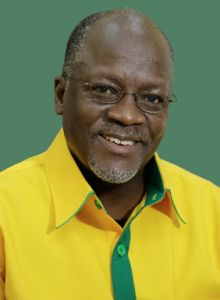President John Magufuli rose to power in Tanzania in 2015 with 58% of the popular vote. A populist and master of publicity, Magufuli gathered support all over the nation and now leads one of Africa’s most populous nations. He ran with the promise of cutting corruption and helping the common Tanzanian, and in the beginning of his presidency, it seemed that he would deliver on the promises he made.

Photo: Wikimedia Commons
However, during 2016, he began waging a war on democracy. His efforts to maintain power have trampled on human rights and created a culture of fear in Tanzania. Members of opposition groups are being assassinated, prisoners will be subjected to forced labor and dissenters are disappearing. In addition to his violations of basic human rights, Magufuli’s government is attacking businesses under the guise of national populism. Several companies have had their mining licences cancelled, newly targeted defamation laws are crushing newspapers, taxes on foreign investment have been raised and government control has expanded in the airline industry.
Magufuli’s policies present a great risk to Tanzania and will drastically slow its growth, which has been strong in recent years. These policies represent a return to a model of development that does not work. Peter Bauer has studied Africa for years and concludes that foreign aid and anti-trade protectionism do not work to combat poverty. Nations need to have trade, legal status for their people, free exchange and the rule of law. However, Magufuli opposes all this to preserve his own power. In their book, Why Nations Fail, Daron Acemoglu and James Robinson present a model of development built on inclusive economic institutions. They argue that leaders often set up institutions to benefit themselves by deliberately excluding the people and suppressing growth. It appears that Magufuli is a part of this vicious cycle, and he will do whatever needs to be done to maintain power. His populist rhetoric landed him the election, but his policies and actions have proven that he is not a man of the people any longer.
The political and economic ideas presented by the likes of Bauer, Acemoglu, Robinson, and others are key to unlocking the economic potential within Africa; however, no lasting growth can occur without a proper understanding of the human person. At the core of the Acton Institute’s beliefs rests a respect for the human person. Acton believes that human beings are made in the image of God and deserve freedom and dignity. Without freedom and dignity, human flourishing cannot exist, and societies that violate these principles suffer the economic consequences of their actions.
Simply put, people are made in God’s image, which means they have inherent dignity, but they are also broken, which means sin will lead them into wickedness. God gave mankind dominion over creation; we are to create, regulate, develop and discover his creation; however, due to mankind’s sin, that dominion is misinterpreted and misapplied. Instead of having dominion over the birds of the air, the fish of the sea, and creatures that walk along the ground, men seek to exert dominion over one another and treat each other as objects for their own gain. Clearly, Magufuli does not respect the dignity of his opponents, and he will eradicate the nation’s growth by ignoring and oppressing those calling for change.
Photo: Wikimedia Commons
